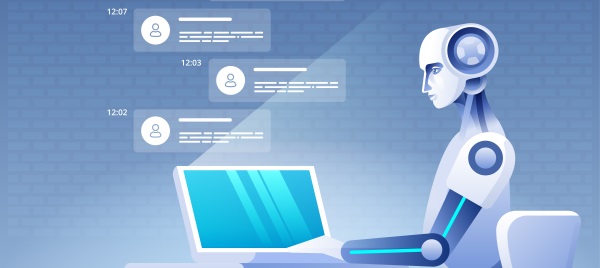posted on May 31, 2018 by NelsonHall Analyst

With increasing pressure on organizations to find the best hires, talent acquisition (TA) teams are continuing to grow. And as more Gen Zs are joining the workforce for the first time, so too are the latest generation of virtual assistants or chatbots. Here I look at the early careers and future prospects of Ari and Mya, two virtual assistants currently being used by TA vendors and corporate TA teams.
Ari
Ari from TextRecruit, now a wholly owned subsidiary of iCIMS Inc., is a customizable recruiting chatbot that uses natural language processing and machine learning. Ari has shown potential from the start, has taken on more responsibility over time, and looks set to advance in 2018 and beyond. Ari supports TA teams by interacting/chatting with candidates on their preferred technology (mostly smartphone) by text, live chat and Facebook messenger (via JobChat and TextApply).
The chatbot completes administrative tasks (up to 80% of candidate communications) using the TextRecruit candidate engagement platform for keeping records, which enables robust analytics on hiring patterns or metrics, ensuring latest compliance with data protection. Ari’s expanded responsibilities include working with TextHR (onboarding candidates and improving internal employee engagement) and TextReach (communicating with project resources).
Ari initially supported candidates in ‘deskless’ environments (e.g. healthcare and retail jobs) but has developed knowledge across other jobs and sectors. Ari’s day-to-day tasks include sending job postings to candidates, screening, scheduling candidate interviews, and answering organization-specific questions.
The chatbot also undertakes regular training such as learning organizational information specific to each customer (industry, business unit, location, functions, skill levels, etc.), including any updates to that information. Building on an earlier (2015) integration of TextRecruit with iCIMS via UNIFi, the new 2018 relationship with iCIMS will enable Ari (and TextRecruit) to be a core component of the iCIMS Recruit, Connect and Onboard products, bringing improved candidate engagement and automation capabilities to the market.
Mya
Mya from Mya Systems originally started her career in 2016 by addressing a big issue identified in the recruitment space: candidates not hearing back from potential employers. Mya’s remit from the start was focused on delivering candidate care through quality conversation via text, chat, Skype, WhatsApp and Facebook.
Mya converses with candidates and uses natural language understanding to pick up on details in the conversation. Utilizing AI technology including a deep learning-based multiple intent classifier, named entity extraction (such as company, role, duration, etc.) and sentence semantic analysis, Mya ingests, understands and evaluates a candidate’s responses to a job position's requirements, and can then determine how to proceed, suggest jobs, or schedule an interview.
The chatbot uses Dialog Management to lead the direction of the conversation. As natural conversations are non-linear, Mya can manage multiple states of a conversation and gently guide candidates through an evaluation while continuously processing the current state, action and result. This allows Mya to find meaningful information from the candidate's responses. Mya uses a realization engine to generate text from a syntactic representation, dynamically shift her conversation based on responses, and complete the conversation. Once the conversation is complete, she will send an updated status, updated profile, and transcript to the client’s applicant tracking system.
Mya is constantly learning from these candidate interactions and can interpret open-ended dialogue via intent recognition – e.g. questions such as ‘Where are you in your career?’ Mya’s linguistic skills have developed rapidly – she can now adapt language to regional/country nuances (such as English/ U.S. English) and to customer preference for tone (formal or more casual language style). If a candidate responds with ‘No problem!’, Mya interprets that as a positive response, not a negative one. While Mya can already support multiple languages (such as Spanish, German, Italian, etc.), she continues to learn nuances about each language to develop her capabilities further.
Mya is also proactive, in that clients can have her reach out to passive candidates in their databases to initiate a conversation about possible interest in a job opportunity rather than waiting for candidates to apply for a role. This has a 90% conversation completion rate.
Initially, Mya supported candidates in the retail, warehousing, food and hospitality industries, but has now expanded to engineering and healthcare. Originally, the emphasis was on screening and scheduling of candidates, but Mya has taken on more responsibility, covering the entire hiring process – pre-application questioning, sourcing, responding to FAQs, delivering application progress updates, giving tips and guidance to candidates, scheduling interviews, providing reminders, alerting candidates when a position has been filled, and even re-deployment. Mya has achieved a 4:1 ratio of applicant to hire, compared to the 10:1 industry average, taking less than 72 hours to get applicants to the interview stage in the process.
Mya’s future is looking good. Further investment in her training/mentoring will focus on deep learning for her more recently acquired onboarding skills. Mya will continue to work with larger clients, as the demand from larger organizations continues to accelerate.
Summary
The potential for the more well-known digital assistants in the TA space is positive, with both Ari and Mya showing good career progression to date, and their individual development plans look promising.
And the trend for TA virtual assistants looks set to continue. Another example is Olivia from paradox.ai, who delivers screening, scheduling and FAQ support to candidates through the web, mobile platforms, and social channels. She also intelligently provides next steps and routes ‘green light’ candidates to recruiters.
TA virtual assistants are also being developed in-house by recruitment organizations, both by investing in/acquiring third-party technology companies with their own AI expertise, and by hiring AI experts into their own innovation teams to develop digital assistants using a third-party AI platform.
We will see more digital assistants emerging from third-party tech/tools providers and recruitment service providers. But, just as some of the Gen Zs starting their careers in the recruitment space will not make it and drop out, so too will some of their virtual colleagues!
